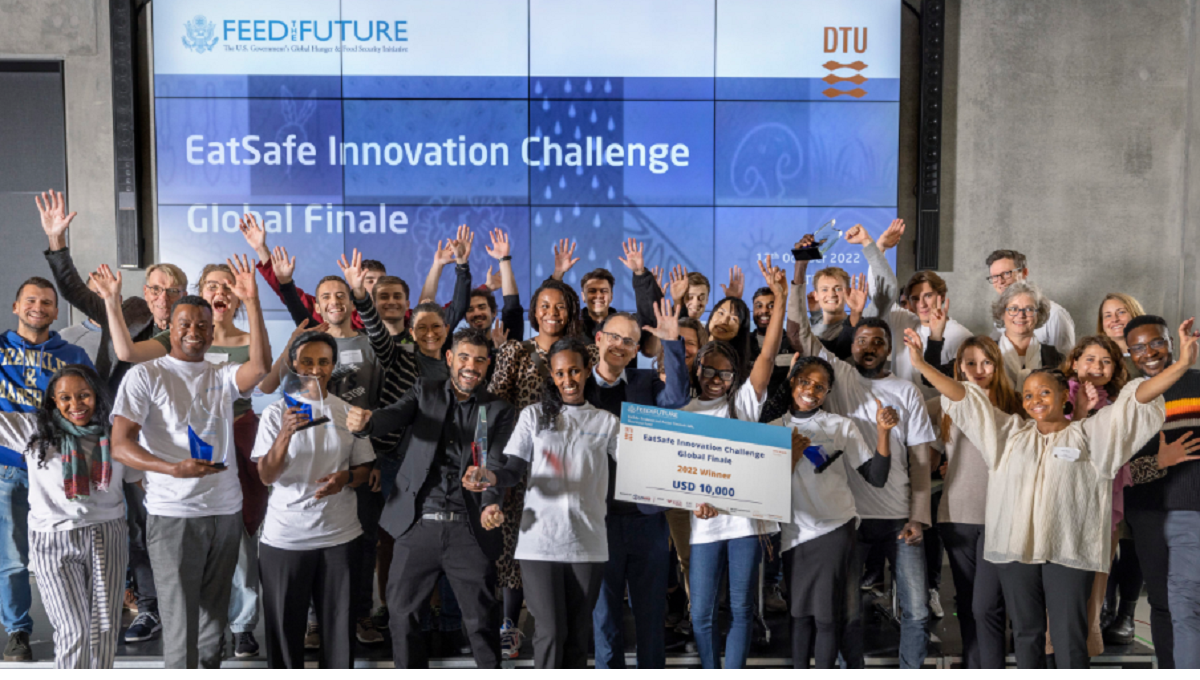
An idea to improve traditional processing of a staple Ethiopian product has won the top prize in a food safety challenge.
The winner was awarded $10,000, and second and third-place winners received $5,000 and $3,000 respectively.
In April, the U.S. Agency for International Development (USAID)-funded Feed The Future Initiative, EatSafe: Evidence and Action Towards Safe, Nutritious Food, launched a call to apply for an innovation challenge. The competition wanted to enable lasting improvements in the safety of nutritious foods in Ethiopia and Nigeria, and more than 750 applications were received.
Ten concepts were chosen as finalists in the EatSafe National Innovation Challenge pitch events in both countries, five from Nigeria and five from Ethiopia.
The top three from both countries went through to the finals at the Technical University of Denmark Skylab FoodLab (DTU), Lyngby in October.
From Nigeria, the top three finalists were Tijjani Ali Lawal, Ruth Ede, and Oyeyemi Fadairo. In Ethiopia, they were Helen Weldemichael, Yezichalem Tessema, and Eyoel Legesse Arega.
Winning ideas
Weldemichael, an Associate Professor at Wolkite University, was awarded as the overall winner for her mechanized processing innovation to improve the safety and increase the efficiency of processing enset, which is a staple food to about 20 million Ethiopians.
“It has been a great opportunity to represent my country at such a global event. I would like to express my gratitude to those who led the event and support providers for giving me a chance to deliver safe food to my community by reducing the workload of women,” she said.
Enset is used to make kocho. Weldemichael said the processing of kocho is carried out in the backyard of a farmer’s home, often by women with traditional knowledge. It uses natural microbes and old equipment. The fermentation process is often lengthy, and labor-intensive and can lead to inconsistent and unhygienic product quality. Little is known about the microbes in kocho and their roles in fermentation and spoilage.
Design and development of processing equipment and starter cultures should optimize, standardize and transform kocho into a commercial-level product, she added.
Fadairo, whose entry was an inflatable solar tunnel dryer to prevent food spoilage, took second place, while Ede came in third for her submission that converts bio-waste from traditional markets to high-yield organic fertilizer.
Dr. Richard Pluke, EatSafe’s program director, and a judge during the final congratulated all participants.
The EatSafe Consortium includes the Global Alliance for Improved Nutrition (GAIN), International Livestock Research Institute (ILRI), Pierce Mill Entertainment and Education, and Busara Center for Behavioral Economics.
(To sign up for a free subscription to Food Safety News, click here.)
